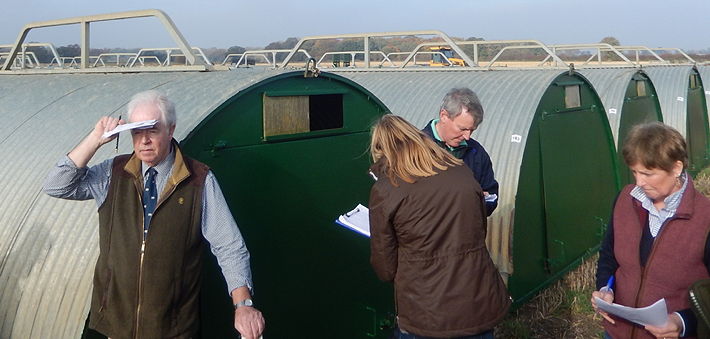Pig trading continued today on very similar levels to a week ago. “No worse” was one of the comments heard with the exception of sow prices, but it still seems to be a case of not enough demand rather than too many pigs, although the situation has not been helped by the recent balmy weather which will have encouraged growth rates at a time of year when cold weather normally prevails.
The latest SPP has moved down 0.24p and now stands at 137.5p which is well below COP levels, although the German producer price has stood on at €1.40, which is equivalent to 122p in our money, but serves to explain why cheaper imports are still putting downward pressure on UK pig prices.
Most weekly contribution prices have stayed at similar levels within the 125p-129p range and were also putting a lid on any price recover which producers sorely need.
Spot bacon demand has remained quiet, with most pigs being sold on contract, but there are reports of deals being done in around the 128p-130p region.
Despite German pig prices standing on, an improvement in the value of the Pound has hit the Euro which traded today worth 87.07p compared with 89.97p a week ago and as a result the main cull sow buyers dropped their bids by around 1p/kg with most now in the 58p-63p range.
Despite fewer weaners on offer, demand has remained selective and once again the AHDB have had insufficient numbers to quote the 30kg average, which when last calculated was £43.37 per head with the latest 7kg average marginally dearer, up by 0.44p to £35.83. It will take a recovery in finished pig prices to provide some weaner buyers with enough confidence to fill their units and to give weaner breeders a better return than they are currently receiving to keep on the right side of their bank manager, which is all important at present.
Futures grain prices have also risen marginally with London feed wheat for May delivery quoted up £2.65/t to £164.35, November up by £2 to £148/t. Although there have been some falls in a complex market influenced by US China trade issues, uncertainty over crop yield sizes and the dreaded Brexit situation.
UK protein prices have however stayed at reasonably similar levels with 48% soya meal ex Liverpool traded at £301/t and 34% rapeseed ex Kent at £207/t.
And finally, still on the subject of Brexit, DEFRA have recently published new guidelines to try and ensure that changes in the export trading of pig meat and animal products can continue in the event of a Brexit No Deal. This advice is designed to minimise disruption to pig meat exports from the UK but with less than 40 days to go until the end of March it is going to be a case of nip and tuck to get all the paperwork in place and to face the challenges and post Brexit changes which lie ahead.




